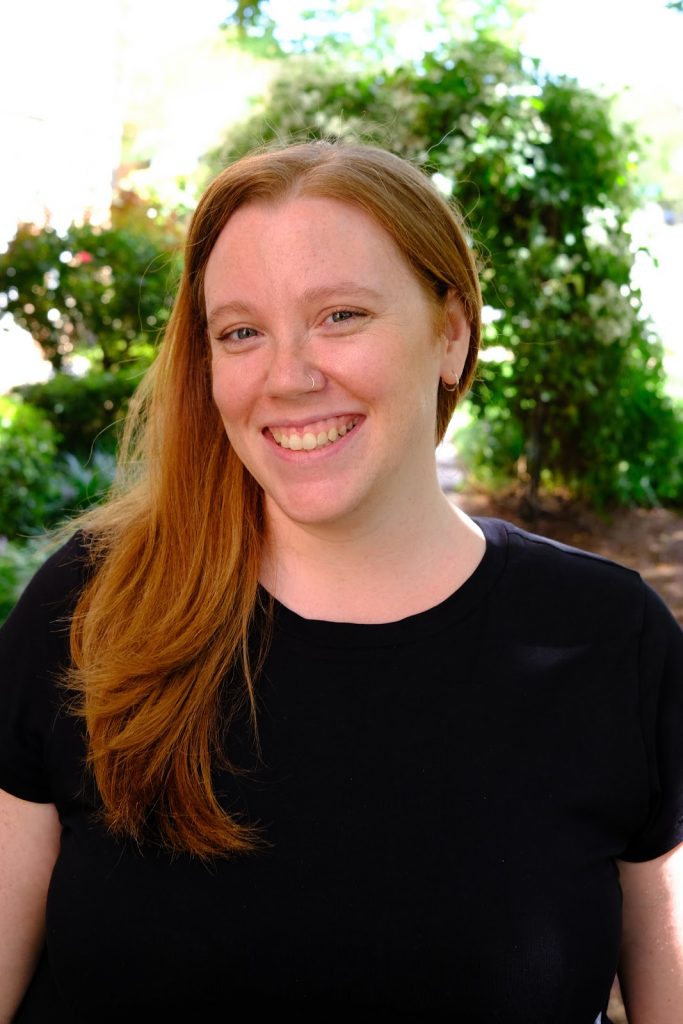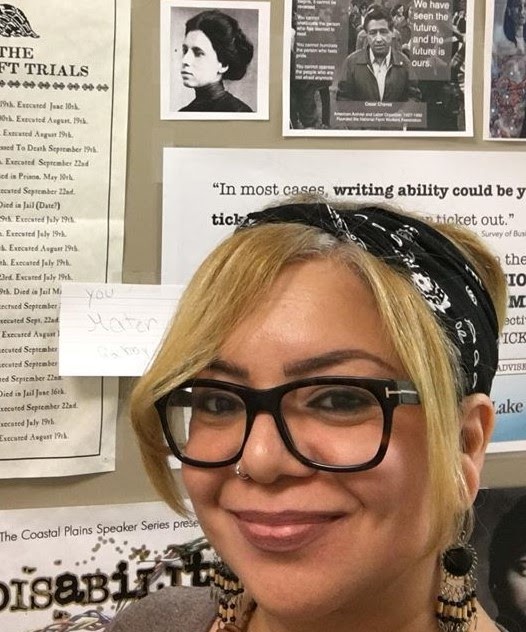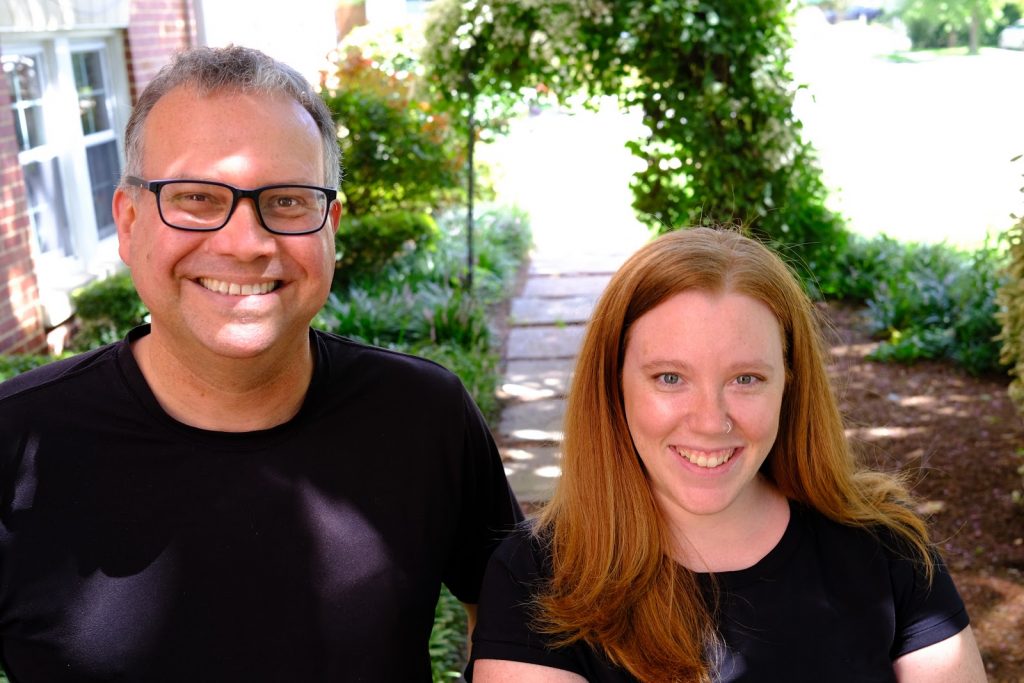9:00-9:15 Welcome and Land Acknowledgement
Kristi Costello, Jenn Sloggie, and Kole Matheson
9:15-10:15 Ligers and Tigons, Oh My: Recognizing You Are Not a Hybrid, Though Your Classroom May Be
Cheri Lemieux Spiegel, Ph.D.
Session Moderator: Kevin DePew
As faculty, we are called to be many things, to don many hats, to juggle many plates. At times, teaching can feel like a profession ill-suited to the mere mortal human. In fact, the humanity of those of us in the classroom – both teacher and student – might actually feel like a thing rarely acknowledged. How are we to thrive – just as we are, as who we are – when we are asked to meet such impossible tasks? Are you called to do more with less? To meet each student where they are? And to offer courses that blend online and in-person, synchronous and asynchronous? Where are we to begin when we feel called in so many competing directions that simple survival feels like the best we might hope for? This presentation looks to nature for lessons to guide the way. While most of the species we share this earth with seem to accept the realities of the seasons and allow themselves to live within (or have no means to resist) that cyclical flow, we humans manufacture our preferred conditions. Together, let’s imagine a path to hybrid course design and delivery that considers how we manufacture our spaces and that makes space to embrace the cyclical nature of our world, ourselves, and our classrooms.
10:30-11:45 Making Room for the ‘Multiverse’: Building Classrooms with Access for All in Mind
Christina Cedillo, Ph.D.
Session Moderator: Ruth Osorio
A common Latinx saying states, “Cada quien un mundo,” or “Every person [is] a world.” From this simple yet meaningful statement, we can distill a relational model that prioritizes community-based knowledge-building over individualistic forms of knowledge. This model of relationality reminds us that based on our diverse embodied experiences, we inhabit radically different worlds even as we navigate the same spaces. By acknowledging this “multiverse” of experiences, we can learn to listen with respect and appreciation across bodily difference to make teaching a transactional process based in community and possibility, with significant implications for praxis beyond the current pandemic moment.
12:30-1:20 Teacher to Teacher Roundtables
Session A, Meaningful Moves: Multimodal Strategies for Engaging Students
Unwriting the Writing Process
Jackie Mohan, Session Moderator
This session will share an approach to teaching the writing process through self-reflection, analysis, and creativity that helps students see their writing process in a new way, using a multimodal approach and media of their choice. In the assignment, students create a visual representation of their writing process and then a written explanation of their creative choices in the visual representation, which helps break up the pattern of writing-only assignments, allows them creative freedom to express themselves, and requires them to reflect in detail on their own personal writing process, as well as their process for composing this specific assignment. It also allowed me to get to know the students better and see in which areas of the writing process they felt most and least confident.
Where are My Students, Where is My Teacher? Designing “Pop-Up” Flyers to Encourage Student Attendance to Synchronous Office Hours
Kole Matheson
One method of facilitating successful appointments for office hours is to develop a multimodal flyer which advertises “Pop-Up” availability during various times in the week. The flyer should contain basic information about the “Pop-Up” opportunity and include embedded links for easy access. In this way, instructors are taking a proactive approach to communicating their presence to students, while students are able to witness the immediacy of instructor availability, one tap away.
Effective Individualized Feedback
Suzanne Dunlevy
This presentation will share an effective feedback system that has come out of going virtual in the last year.
Session B, What Do We Bring with Us? Post-Pandemic Considerations
Permissiveness and the Consequences of Pandemic Pedagogy
Beth Vincelette and Mary Beth Pennington
The pandemic has challenged faculty to be more forgiving of their students and themselves. Working individually with students to make up missed work, extending deadlines, and overlooking absences or tardiness have all become part of our teaching lives in these strange times. When we return to normal operations over the next year, will these allowances remain the norm? Should they? This roundtable explores the complicated relationship between allowances and accountability in the classroom. Relaxing expectations can seem humane, but it sometimes violates our teaching instincts and can feel like more of a disservice to our students than an act of grace. Presenters will spend some time sharing experiences, as well as policies and approaches that may help to reconcile these competing instincts.
Managing Our Responses to Student Emails During – and After – a Pandemic
Jonathan Marine
Keeping up with student emails can be a struggle – especially during a pandemic where there’s an expectation that you, as an instructor, are available (or at least more available). While the expectation by students of a timely response can be crushing – particularly for those of us with high course loads – the truth is that our communication with students is one of the most important parts of our job. In this short talk, he will offer strategies for managing student expectations and email responses – because the simple fact of the matter is that when a student emails us with a question, 85%+ of the time that’s when they’re working on it. While we can’t let student emails dictate the cadence of our day (nor our night), timely responses are a valuable and valued part of their educational experiences and so too the customer service element of our jobs. Join him in thinking – and re-thinking – about managing student emails in ways that balance the need for timely response with our own need for time away from our desks, computers, and phones. For this issue – professional, timely communication with students – won’t be going away just because (or if) the pandemic does.
Self-Care Strategies for Teaching Faculty
Ariel Tobin, Session Moderator
We will discuss the need for self-care as teaching faculty. Too often we, as faculty, ignore our own basic needs for the sake of keeping up appearances or to make things seem almost too normal. This presenter will share some of the strategies that she has learned while teaching through the pandemic that she hopes to carry with her.
Session C, Reading, Writing, and Connecting Students with Texts
Hot Potatoes: Connecting Textual Analysis with Lively Class Discussions
Deb Christie, Session Moderator
Class discussions can be a tricky business. Teachers want engagement, but they also want to uphold principles of civility, inclusivity, and diversity. For the latter reasons, many shy away from controversial topics—“hot” topics. For the last two or three years, I have been using a growing collection of memes, tweets, FB and IG posts, cartoons, and pictures to inspire analysis and then prompt discussion. I started referring to them as Hot Potatoes, and, like the childhood game, a mini-topic is tossed out and around. We begin with the visual, even if the visual is mostly text (like a tweet) and we break these artifacts down by using familiar techniques we have already practiced: symbols, use of color, pathos/ethos/logos, etc. Freewriting activities or small group discussions build a body of analysis relating to the Hot Potato, and then discussion is focused on identifying the argument and techniques—even the emotional ones—that the author has used. Discussing gun rights might seem daunting but discussing a meme about guns deflects some of the weight of the conversation; I’m not so much asking for the students’ opinions on the broader topic, rather emphasizing the process of how those opinions are formed, confirmed, or dispatched. These “hot potatoes” foster key critical thinking skills and fuel respectful, enriching conversations.
Addressing Race Matters and Literacy: Samples from Edgar Allan Poe’s narratives
Mabel Deane Khawaja
To discourage plagiarism and to encourage independent thinking, this instructor adopted timed and supervised reading and writing assignments without prior indication of the text or the author to the students. Unlike the traditional AP question for literary analysis, she constructs short questions, mixing a complex question with a couple of simple questions. She has used this approach with several authors’ works, but she will address Edgar Allan Poe’s narratives to connect to race matters.
Creating a Burkean Parlor with a Class Blog
Mary Ellen Gleason
This instructor uses a blog to engage her students in assigned reading. It helps them address content more deeply. They learn to engage the voices of their peers. They also discover their own writer’s voice. She teaches Kenneth Burke’s the Burkean Parlor; thereby, creating an ongoing conversation and a safe place for her students to engage in opposing views. Behind the scenes, she is getting them engaged in “playing the believing game” which is a pedagogical strategy of the rhetorician, Peter Elbow. SHe has used blogs in her online classes and even made it part of her face-to-face classes to get the depth and engagement she wanted for reading assignments.
1:30-2:45 Do My Students’ Voices STILL Matter?
Margaret E. Harris-Shoates, M.Ed.
Session Moderator: Jenn Sloggie
We cannot achieve equity in our schools and classrooms unless we affirm, value, and amplify student voices. As educators and instructors of writing, we have a tremendous opportunity to leverage student voices and to empower our students to take meaningful ownership of their learning. Since March 2020, however, new and existing influences have threatened to suppress student voices in both physical and digital learning spaces. In light of the fear, trauma, and discomfort that has accompanied the unrest of the past year, how can we sustain and extend our work of designing responsive curricula that provide equitable access to all learners, increasing authenticity in the learning tasks we require of students, and leveraging technology to amplify student voices? This session will give participants the opportunity to engage in deep reflection about how our pedagogy and practices have shifted since March 2020 in pursuit of affirming student voices in our new learning landscapes. Educators will collaborate with colleagues and fellow practitioners through unconference-style discussion groups to build collective wisdom around: (1) constructing affirming digital spaces for all students, (2) co-creating new ways of working with students and their families, (3) rethinking policies to align with our core values, and (4) protecting a culturally responsive curriculum. We will explore a framework for sustaining the momentum of transformative change, giving us the tools we need to begin developing a personalized plan to move forward.
3:00-4:15 Attention to What Is: Mindful Faculty, Mindful Students, Mindful Pedagogy
Cheri Lemieux Spiegel, Ph.D. and Paul Fitzgerald, Ph.D.
Session Moderator: Kristi Costello
What does it mean to “pay attention?” Much of what we ask of our students in the writing classroom starts with a call to witness and consider that which is before them. Interestingly, this very question also lies at the heart of what it means to be mindful: what happens when you really pay attention? In this presentation, we suggest that mindfulness can be a tool to transform our classrooms, our students, and ourselves. However, our suggestion comes with a caveat: mindfulness is not the band-aid to overcome a culture of busyness, overwork, and labor exploitation that it is so often made out to be. Instead, we would offer that true mindfulness allows us to navigate the complex causes and conditions of our lives with authenticity and presence. The awareness gained from such practice can then become an opportunity within our classroom and within the relationships we foster, both with our students and our colleagues. In that spirit, we invite you to explore what “paying attention” really means to you. What do you find out about yourself when you do? What happens when you invite your students to pay attention alongside you? And how similar are all these practices in attention to what we are asking our writing students to do every day in the first place?




